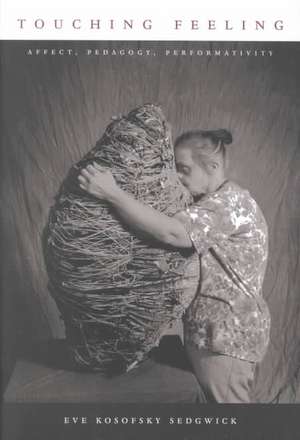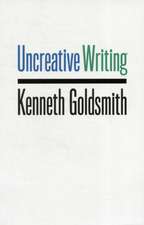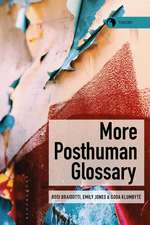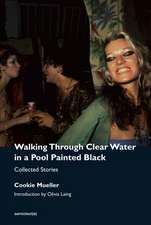Touching Feeling – Affect, Pedagogy, Performativity: Series Q
Autor Eve Kosofsky Sedgwicken Limba Engleză Paperback – 16 ian 2003
Din seria Series Q
-
 Preț: 240.90 lei
Preț: 240.90 lei -
 Preț: 174.69 lei
Preț: 174.69 lei -
 Preț: 217.18 lei
Preț: 217.18 lei -
 Preț: 176.68 lei
Preț: 176.68 lei -
 Preț: 158.81 lei
Preț: 158.81 lei -
 Preț: 169.81 lei
Preț: 169.81 lei -
 Preț: 194.37 lei
Preț: 194.37 lei -
 Preț: 227.14 lei
Preț: 227.14 lei -
 Preț: 168.75 lei
Preț: 168.75 lei -
 Preț: 191.15 lei
Preț: 191.15 lei -
 Preț: 191.36 lei
Preț: 191.36 lei -
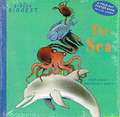 Preț: 243.90 lei
Preț: 243.90 lei -
 Preț: 193.54 lei
Preț: 193.54 lei -
 Preț: 210.82 lei
Preț: 210.82 lei -
 Preț: 217.18 lei
Preț: 217.18 lei -
 Preț: 151.08 lei
Preț: 151.08 lei -
 Preț: 264.26 lei
Preț: 264.26 lei -
 Preț: 231.22 lei
Preț: 231.22 lei -
 Preț: 266.93 lei
Preț: 266.93 lei -
 Preț: 305.08 lei
Preț: 305.08 lei -
 Preț: 230.02 lei
Preț: 230.02 lei -
 Preț: 314.12 lei
Preț: 314.12 lei -
 Preț: 304.47 lei
Preț: 304.47 lei -
 Preț: 264.26 lei
Preț: 264.26 lei -
 Preț: 267.70 lei
Preț: 267.70 lei -
 Preț: 262.32 lei
Preț: 262.32 lei -
 Preț: 236.86 lei
Preț: 236.86 lei -
 Preț: 270.20 lei
Preț: 270.20 lei -
 Preț: 265.79 lei
Preț: 265.79 lei -
 Preț: 229.09 lei
Preț: 229.09 lei -
 Preț: 231.60 lei
Preț: 231.60 lei -
 Preț: 270.31 lei
Preț: 270.31 lei - 5%
 Preț: 197.54 lei
Preț: 197.54 lei - 9%
 Preț: 667.83 lei
Preț: 667.83 lei - 15%
 Preț: 623.39 lei
Preț: 623.39 lei -
 Preț: 259.54 lei
Preț: 259.54 lei -
 Preț: 229.47 lei
Preț: 229.47 lei
Preț: 146.75 lei
Nou
Puncte Express: 220
Preț estimativ în valută:
28.09€ • 28.95$ • 23.71£
28.09€ • 28.95$ • 23.71£
Carte disponibilă
Livrare economică 10-24 februarie
Livrare express 24-30 ianuarie pentru 36.46 lei
Preluare comenzi: 021 569.72.76
Specificații
ISBN-13: 9780822330158
ISBN-10: 0822330156
Pagini: 208
Ilustrații: 1 figure, 1 photo
Dimensiuni: 162 x 236 x 23 mm
Greutate: 0.34 kg
Ediția:New.
Editura: MD – Duke University Press
Seria Series Q
Locul publicării:United States
ISBN-10: 0822330156
Pagini: 208
Ilustrații: 1 figure, 1 photo
Dimensiuni: 162 x 236 x 23 mm
Greutate: 0.34 kg
Ediția:New.
Editura: MD – Duke University Press
Seria Series Q
Locul publicării:United States
Recenzii
"Eve Kosofsky Sedgwick's gift is to electrify intellectual communities by reminding them that 'thought' has a temperature, a texture, and an erotics. With a generosity that is at once self-abnegatingly ascetic, and gorgeously, exhibitionistically bravura, she opens door after door onto undiscovered fields of inquiry. There are too many high points in Touching Feeling for me to list them. Sedgwick's language, richly garlanded, syntactically showstopping, gives, everywhere, its characteristic, always surprising pleasure." Wayne Koestenbaum, author of Andy Warhol"Eve Kosofsky Sedgwick writes with intense precision, and yet her work directs us toward the domain where meaning is music, unquantifiable, enigmatic, nonlinguistic. If the performative speech act, with all its relation to norms and laws, is central to the reception of her work in queer theory, then the performativity of knowledge beyond speech-aesthetic, bodily, affective-is its real topic." Lauren Berlant, author of The Queen of America Goes to Washington City . . . Touching Feeling, [is] a collection of essays dating back to 1992 which [Sedgwick] hasrevised to form an extended theoretical meditation on non-dualistic thought . . . The loosely connected essays have suchthemes as shame, theatricality, performativity, the biology of affect, reparative v. paranoidreading, and death. . . . Sedgwicks courage in speaking openly about her illness and aboutaspects of her self that most academic women would keep private, including being fat, is verymoving.Elaine Showalter, London Review of Books 6 March 2003
"Eve Kosofsky Sedgwick's gift is to electrify intellectual communities by reminding them that 'thought' has a temperature, a texture, and an erotics. With a generosity that is at once self-abnegatingly ascetic, and gorgeously, exhibitionistically bravura, she opens door after door onto undiscovered fields of inquiry. There are too many high points in Touching Feeling for me to list them. Sedgwick's language, richly garlanded, syntactically showstopping, gives, everywhere, its characteristic, always surprising pleasure." Wayne Koestenbaum, author of Andy Warhol "Eve Kosofsky Sedgwick writes with intense precision, and yet her work directs us toward the domain where meaning is music, unquantifiable, enigmatic, nonlinguistic. If the performative speech act, with all its relation to norms and laws, is central to the reception of her work in queer theory, then the performativity of knowledge beyond speech-aesthetic, bodily, affective-is its real topic." Lauren Berlant, author of The Queen of America Goes to Washington City "... Touching Feeling, [is] a collection of essays dating back to 1992 which [Sedgwick] has revised to form an extended theoretical meditation on 'non-dualistic thought' ... The loosely connected essays have such themes as shame, theatricality, performativity, the biology of affect, reparative v. paranoid reading, and death... Sedgwick's courage in speaking openly about her illness and about aspects of her self that most academic women would keep private, including being fat, is very moving."--Elaine Showalter, London Review of Books 6 March 2003
"Eve Kosofsky Sedgwick's gift is to electrify intellectual communities by reminding them that 'thought' has a temperature, a texture, and an erotics. With a generosity that is at once self-abnegatingly ascetic, and gorgeously, exhibitionistically bravura, she opens door after door onto undiscovered fields of inquiry. There are too many high points in Touching Feeling for me to list them. Sedgwick's language, richly garlanded, syntactically showstopping, gives, everywhere, its characteristic, always surprising pleasure." Wayne Koestenbaum, author of Andy Warhol "Eve Kosofsky Sedgwick writes with intense precision, and yet her work directs us toward the domain where meaning is music, unquantifiable, enigmatic, nonlinguistic. If the performative speech act, with all its relation to norms and laws, is central to the reception of her work in queer theory, then the performativity of knowledge beyond speech-aesthetic, bodily, affective-is its real topic." Lauren Berlant, author of The Queen of America Goes to Washington City "... Touching Feeling, [is] a collection of essays dating back to 1992 which [Sedgwick] has revised to form an extended theoretical meditation on 'non-dualistic thought' ... The loosely connected essays have such themes as shame, theatricality, performativity, the biology of affect, reparative v. paranoid reading, and death... Sedgwick's courage in speaking openly about her illness and about aspects of her self that most academic women would keep private, including being fat, is very moving."--Elaine Showalter, London Review of Books 6 March 2003
Textul de pe ultima copertă
"Eve Kosofsky Sedgwick writes with intense precision, and yet her work directs us toward the domain where meaning is music, unquantifiable, enigmatic, nonlinguistic. If the performative speech act, with all its relation to norms and laws, is central to the reception of her work in queer theory, then the performativity of knowledge beyond speech--aesthetic, bodily, affective--is its real topic."--Lauren Berlant, author of "The Queen of America Goes to Washington City"
Cuprins
Acknowledgments xi
Introduction 1
Interlude, Pedagogic 27
1. Shame, Theatricality, and Queer Performativity: Henry James’s The Art of the Novel 35
2. Around the Performative: Periperformative Vicinities in Nineteenth-Century Narrative 67
3. Shame in the Cybernetic Fold: Reading Silvan Tomkins (Written with Adam Frank) 93
4. Paranoid Reading and Reparative Reading, or, You’re So Paranoid, You Probably Think This Essay Is About You 123
5. Pedagogy of Buddhism 153
Works Cited 183
Index 189
Introduction 1
Interlude, Pedagogic 27
1. Shame, Theatricality, and Queer Performativity: Henry James’s The Art of the Novel 35
2. Around the Performative: Periperformative Vicinities in Nineteenth-Century Narrative 67
3. Shame in the Cybernetic Fold: Reading Silvan Tomkins (Written with Adam Frank) 93
4. Paranoid Reading and Reparative Reading, or, You’re So Paranoid, You Probably Think This Essay Is About You 123
5. Pedagogy of Buddhism 153
Works Cited 183
Index 189
Notă biografică
Descriere
A collection of essays examining theories of affect and how they relate to issues of performance and performativity
